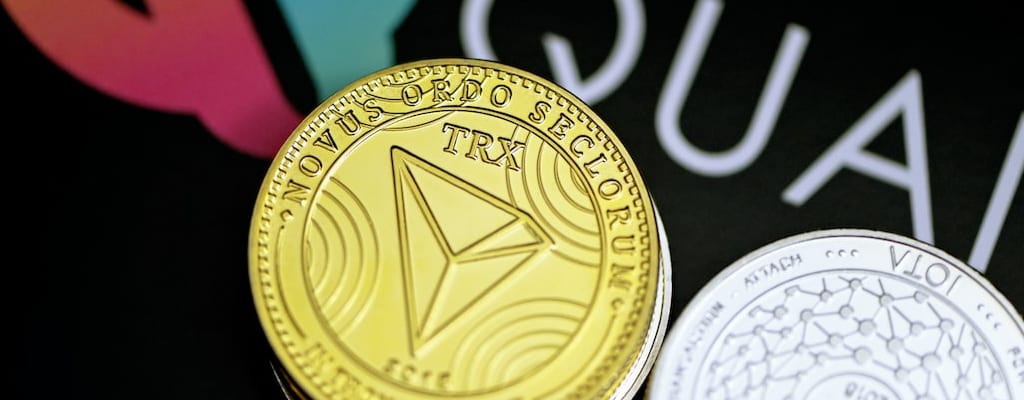silly money: Idiom Meaning and Origin
What does ‘silly money’ mean?
The idiom "silly money" refers to an excessive or absurd amount of money, often used to describe a huge sum paid for something that may not be worth its value.

Idiom Explorer
The idiom "throw money away" means to spend money on something that is essentially wasteful or unnecessary, resulting in a loss of money or resources.
This phrase suggests a careless or frivolous attitude towards money, implying that the person is not concerned about the value or usefulness of what they are spending their money on.
An idiom used to emphasize the extreme or exceptional quality of someone or something.
The idiom "sitting pretty" means to be in a very favorable or advantageous position, usually as a result of good luck or previous effort.
The idiom "sit on it" means to ignore, dismiss or delay dealing with something.
The idiom "silver spoon" refers to someone who is born into a wealthy or privileged family, implying that they have advantages and opportunities handed to them without having to work for them.
The idiom "silver sheet" means a piece of material that is very thin and shiny, resembling silver. It can also refer to a document or form that is simple and straightforward.
The idiom "silly season" refers to a period, often during the summer, when news stories of little significance or entertainment value are predominantly covered, due to the lack of more substantial news. It is a term used to describe a time when the media focuses on trivial or sensationalized stories.
The idiom "sight unseen" means to make a judgment or decision without seeing or examining something or someone beforehand.
The idiom "sick puppy" refers to someone who is mentally disturbed, unstable or emotionally unbalanced.
FAIL
Silly money is an idiomatic expression commonly used in colloquial English. This idiom refers to an exorbitant amount of money or an unrealistic sum of wealth, often suggesting that something is overly expensive or overvalued. It conveys a sense of disbelief or astonishment at the excessive amount of money involved.
The origins of the idiom are unclear, with no definitive source pinpointed. Nonetheless, its usage can be traced back to the mid-20th century, suggesting that it originated around that time or earlier. The idiom has since become firmly embedded in everyday language, particularly in informal conversations or discussions about the cost of goods, services, or assets.
Silly money is commonly used to describe situations where prices are perceived as absurdly high or where individuals engage in extravagant spending. It often connotes a sense of inflated value and serves as a critique of the reckless or excessive pursuit of wealth. The concept implies that the amount being discussed is far beyond what is reasonable or justifiable.
This idiom can be used in a variety of contexts. For example, one might say, "They were asking silly money for that old painting at the auction," conveying that the price being asked was outrageously high. Similarly, one might comment, "He's earning silly money in his new job," implying that the salary being earned is excessively large or disproportionate to the work being performed. Consequently, silly money can be applied to a broad range of situations, from pricing schemes to personal income.
It is worth noting that the expression silly money is often used in informal speech and writing, particularly in British English. However, its usage has also spread to other English-speaking regions, including the United States. This reflects the continued influence of British English on American linguistic culture.
Silly money is closely related to the idiom "pretty penny." Just like silly money, pretty penny describes a large or exorbitant amount of money. The phrase "pretty penny" often suggests that a considerable sum of money has been spent or will be spent on something. Both idioms convey the idea of excessive financial expenditure or value. To illustrate, one could say, "That designer handbag cost a pretty penny!" or "They made a pretty penny from selling their old car." In each case, the idioms emphasize the high cost or value involved.
Silly money is also related to the idiom "big bucks." Big bucks refers to a significant or substantial amount of money. It is often used to highlight large sums of money earned, spent, or received. The phrase can be employed to describe lucrative financial deals, high-paying jobs, or extravagant purchases. For example, one might say, "They made big bucks from that business venture," indicating substantial financial gains. Likewise, one could comment, "Those tickets are selling for big bucks," signaling that the ticket prices are exorbitantly high.
Another related idiom is "throw money away." When someone throws money away, it means that they are wasting or spending money carelessly and without thought. This idiom highlights the idea of frivolous or unnecessary spending. Like silly money, it critiques the excessive pursuit of wealth, but from a different perspective. For instance, one might say, "He keeps buying expensive gadgets and throwing money away," suggesting that the person is spending money irresponsibly.
The idiom "chump change" is also associated with silly money. Chump change refers to a small or insignificant amount of money. It signifies an amount of money that is considered negligible or unimportant. The phrase is often used to downplay the value or significance of a small monetary sum. For example, one might say, "To him, a hundred dollars is just chump change," indicating that the person considers a hundred dollars to be a small or insignificant amount of money. Similarly, one could comment, "They make millions, so a thousand dollars is just chump change to them," highlighting the insignificance of a thousand dollars in comparison to their overall wealth.
Silly money is an idiomatic expression commonly used to describe excessive or unrealistic amounts of money. Its origins may be unclear, but it has become a well-known phrase in everyday conversations about inflated prices or extravagant spending. Silly money is closely related to idioms like "pretty penny," "big bucks," "throw money away," and "chump change," all of which contribute to the understanding of the excessive pursuit, valuation, or trivialization of wealth.
Example usage
Silly money is used in a sentence in the following examples:
- He offered a silly money for that old painting.
- They paid silly money for those designer shoes.
- The price they asked for the car was silly money.
More "Finance" idioms



